Un rând recitit de curând (”Eram mult mai singur decât sunt acum, când sunt foarte singur”, Cărtărescu, Travesti) și-un gând: ”Ce singur eram înainte de-a se întrupa Hristos și-n inima mea”
Intrăm în Săptămâna Patimilor… Însuși Hristos ar putea spune azi cu privire la acea săptămână cruntă: ”Eram mult mai singur decât sunt acum, când sunt foarte singur” – săptămâna părăsirii Lui de către prieteni. Nicicând n-a fost singurătatea mai grea. În această săptămână, în doar câteva zile, ei L-au trădat, L-au vândut și s-au dezis de El. Scurt pe doi, după mai bine de 3 ani de prietenie… și ce prietenie! El nu s-a oprit din drumul către cruce, a murit pentru acești prieteni nevrednici.
Mai mult, la capătul săptămânii, Hristos NE-învie împreună cu El, Adam-cel-Nou, Restauratorul firii omenești. Ataşez acest fragment video pentru că e o scenă pe care o consider genială în structura filmului lui Mel Gibson, care surprinde dramatismul acestei săptămâni: purtarea de grijă a mamei, pentru care Hristos-Dumnezeu rămâne în continuare copilul ei şi ideea restaurării Omului. Maria trece de la ipostaza mamei copleşite în faţa neputinţei de a-şi ajuta copilul, la ipostaza omului copleşit de a fi în prezenţa lui Dumnezeu, Ziditorul a toate, după cum spune şi Psalmistul: ”Inimă curată zideşte intru mine, Dumnezeule şi duh drept înnoieşte întru cele dinlăuntru ale mele”.
Descumpănirea de pe chipul Mariei după cuvintele lui Hristos nu trădează confuzia, ci tocmai înțelegerea definitivă, fără rest. Acum a priceput de ce a trebuit să-i treacă ”sabie” prin inimă.
Piramida valorilor păgânătății era întoarsă cu susul în jos și toate repuse în matca lor, prin exemplul unui singur Om, a noului Adam – iubirea jertfelnică în locul mândriei ucigătoare:
Aţi auzit că s-a zis: „Să iubeşti pe aproapele tău şi să urăşti pe vrăjmaşul tău”.
Iar Eu zic vouă: Iubiţi pe vrăjmaşii voştri, binecuvântaţi pe cei ce vă blestemă, faceţi bine celor ce vă urăsc şi rugaţi-vă pentru cei ce vă vatămă şi vă prigonesc.
Toate acestea sunt nebunie pentru lume, pentru înțelepciunea acestei lumi. Piramida a fost răsturnată în Hristos – smerindu-ne, vom fi înălțați. Un paradox sublim oferit rațiunii. Mi-aduce aminte de Tersteegen: ”Un Dumnezeu înțeles pe deplin, nu mai este Dumnezeu”
Iisus Hristos – definția deplină a Dragostei
Cea mai frumoasă și mai fără rest definție a dragostei nu o veți găsi în volume de poezie, nici în romane atent ticluite, ci în cuvintele Apostolului. Dragostea nu este a lumii, chiar dacă azi o mai înțelegem doar ca pe un afect psiho-somatic al cărui drept de manifestare oriunde, oricând și, mai ales, oricum trebuie reglementat prin terți (recte autorități statale și/sau suprastatale). Nu o încape un singur cuvânt, cu atât mai puțin acela de „pasiune”. Dragostea poate fi cel mult circumscrisă prin aproximări. Probabil singurul aspect cert cu privire la ea, ca atribut după care ar fi imediat recognoscibilă, este acela de jertfire pentru subiectul vizat, către care tinde. Aflându-se deja cu duhul în Hristos, Apostolul a vorbit despre dimensiunea autentică a dragostei: Ființa-lui-Dumnezeu. Apostolul ne descria pe Domnul său, căruia îi închinase tot restul vieții sale. E de meditat la fiecare aspect în parte subliniat de Sfântul Pavel.
”Dragostea îndelung rabdă; dragostea este binevoitoare, dragostea nu pizmuieşte, nu se laudă, nu se trufeşte.
Dragostea nu se poartă cu necuviinţă, nu caută ale sale, nu se aprinde de mânie, nu gândeşte răul.
Nu se bucură de nedreptate, ci se bucură de adevăr.
Toate le suferă, toate le crede, toate le nădăjduieşte, toate le rabdă.
Dragostea nu cade niciodată”
Transcriptul îi aparține lui saccsiv; am intervenit asupra câtorva formulări.
David Acuna, chirurg traumatolog:
Cred că suferinţa lui Hristos şi demonstraţia stresului fiziologic, pe care corpul Lui omenesc L-a suferit se manifestă în Grădina Ghetsimani. Textele descriu că El transpira sânge, şi există o stare medicală bine documentată, în care pacienţi care sunt supuşi stresului emoţional şi fiziologic de mare anvergură chiar transpiră cu sânge, pentru că vasele capilare din glande explodează şi astfel se elimină sânge.
Biciuirea
Biciuirea implica folosirea unui bici scurt cu bucăţi de metal (de obicei), uneori os, alteori bucăţi de porţelan înfăşurate în panglici de piele şi folosite pentru a lovi de obicei spatele, umerii, picioare victimei. Primele lovituri aplicate pe o parte a corpului rup pielea, grăsimea, dar, în cele din urmă, odată ce straturile superficiale erau sfâşiate ajungeau la muşchi şi la tendoane. Şi, bineînţeles, în acest timp se rup toate vasele de sânge care vascularizează acele ţesuturi, pierzi sânge tot timpul.
Coroana de spini
Planta descrisă avea spinii foarte lungi, nu acei spini pe care îi întâlnim de obicei la tufele de trandafiri, aceştia aveau 4-5 centimetri lungime. Scalpul este una dintre zonele cu cea mai mare vascularizare din corpul omenesc, există o mare cantitate de sânge acolo. Aşadar, având acei spini înfipţi în placa osoasă (a craniului), aceştia ar fi pătruns în tot scalpul, ceea ce ar fi creat o hemoragie puternică. Am văzut oameni care au sângerat mortal doar din cauza unei răni în zona scalpului. Deci nu era o rană minoră, cine ştie câţi spini erau înfipţi în scalp, asta ar fi cauzat o pierdere şi mai mare de sânge.
Purtarea crucii
În mod normal, când o victimă trebuie să care crucea, din ceea ce s-a descris în literatură, în literatura romană, ei purtau bara transversală şi doar bara trasnversală era estimată la aproximativ 50 de kg. Şi, bineînţeles, dacă braţele tale sunt suspendate la nivelul crucii pe care o cari şi cazi, ai nevoie de ajutor ca să te ridici. Nu te poţi ridica singur pentru că nu este posibil să te ridici fără braţe. Deci ar fi avut nevoie de braţe ca să se ridice. Dacă ar fi căzut, sunt şanse mari să se fi lovit în zona pieptului, ceea ce ar fi putut duce la posibilitatea unei răni cardiace.
Anatomic vorbind, considerăm încheietura ca făcând parte din mână, deci prin plasarea cuiului între osul radius şi osul cubitus, tot se încadrează în definiţia mâinii şi este într-o poziţie în care cuiul nu va rupe mâna, îţi trebuie un punct solid de fixare. O altă chestiune interesantă legată de fixarea cuiului este aceea că nervul median trece chiar prin acea porţiune a încheieturii, ceea ce însemna fie distrugerea nervului, fie străpungerea nervului care ar fi creat o durere enormă, la fiecare respiraţie ai fi în agonie, ai fi împins în picioare ţintuite în cuie, care sunt dureroase, şi apoi ai fi atârnat de mâini ţintuite. Deci alternezi o durere enormă cu o altă durere enormă de fiecare dată când respiri.
Suliţa
Deci, chiar dacă ar fi supravieţuit crucificării propriu-zise, ar fi trebuit supravieţuiească ceea ce eu cred că ar fi o rană mortală produsă de suliţa infiptă pentru a verifica dacă este sau nu în viaţă. Ceea ce este descris ca pierderi de apă şi sânge, iar acum ar implica fie o efuziune pulmonară sau pericardică. Sângele ar fi venit fie din artera pulmonară, vena pulmonară, din aortă sau din vena cavă sau chiar din inimă. Niciunei dintre aceste răni nu i s-ar putea supraviețui, doar dacă eşti imediat tratat de un chirurg traumatolog precum sunt eu, cu tot echipamentul ultra-performant pe care îl avem azi.
Chiar a murit?
Hristos, ca Fiu al lui Dumnezeu, ar fi supravieţiut oricărui pericol, El a ales să se manifeste ca om la acel moment şi a permis survenirea morții. Şi, fiind om la acel moment, nu ar fi putut supravieţui acestei serii de traumatisme, nu este posibil. Hristos ca Dumnezeu ar fi putut să supravieţiuiească oricărui pericol, dar el a ales să fie Hristos-omul pentru a-şi da viaţa pentru păcatele noastre. Datorită acelei auto-limitări de a rămâne om, El a murit, nu a supravieţuit evenimentului.
Ce înseamnă sacrificiul Lui pentru tine?
Eu… eu sunt profund impresionat de sacrificiu, pentru că realizez că preţul pe care L-a plătit este ceva ce eu… eu nu aş fi niciodată în stare să-l fac probabil pentru nimeni. Este foarte dificil pentru mine chiar să şi cânt melodii despre cruce, chiar şi la rugăciune. […] Pentru că înţeleg cu adevărat preţul pe care L-a plătit.
El știa ce-L așteaptă, dar a binevoit pentru noi: nu o execuție rapidă, ci o inimaginabilă tortură. Trebuie menționat aici un alt supliciu: după biciuire, pielea îi era sfâșiată, iar romanii l-au înfășurat, în batjocură, într-o mantie. A venit apoi momentul în care au tras-o jos de pe el, la propriu, exact cum ai jupui, căci era plin de sânge când îl acoperiseră. Încercați să trageți un bandaj de pe o rană deschisă. Cam cum ar durea dacă întregul trup ar fi o astfel de rană?
Mărturisiți-vă Lui până în Joia Mare, să vă puteți împărtăși cu Domnul Vieții
Sau nu ştiţi că trupul vostru este templu al Duhului Sfânt care este în voi, pe care-L aveţi de la Dumnezeu şi că voi nu sunteţi ai voştri?
Căci aţi fost cumpăraţi cu preţ! Slăviţi, dar, pe Dumnezeu în trupul vostru şi în duhul vostru, care sunt ale lui Dumnezeu. (I Corinteni, 6: 19, 20)



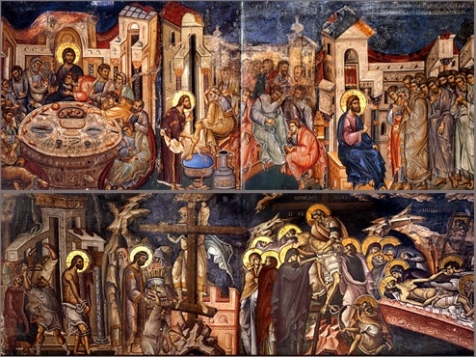






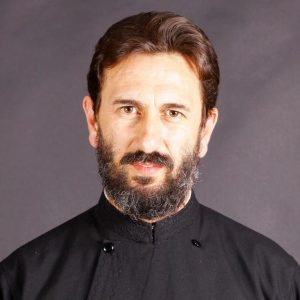



![marius-bostan-foto[1] marius-bostan-foto[1]](https://inliniedreapta.net/wp-content/uploads/elementor/thumbs/marius-bostan-foto1-qt9ywoo2b2lgv37b76h9qr5yo6db5vwzoxbuvd4e6o.jpg)


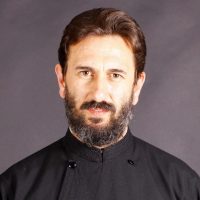

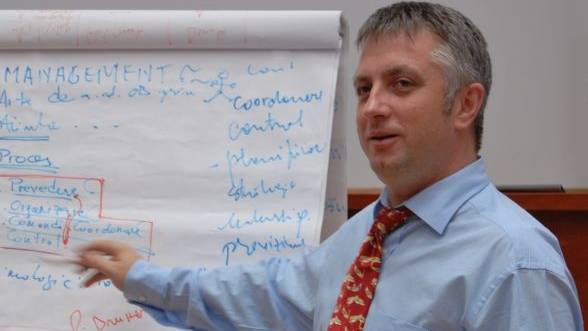
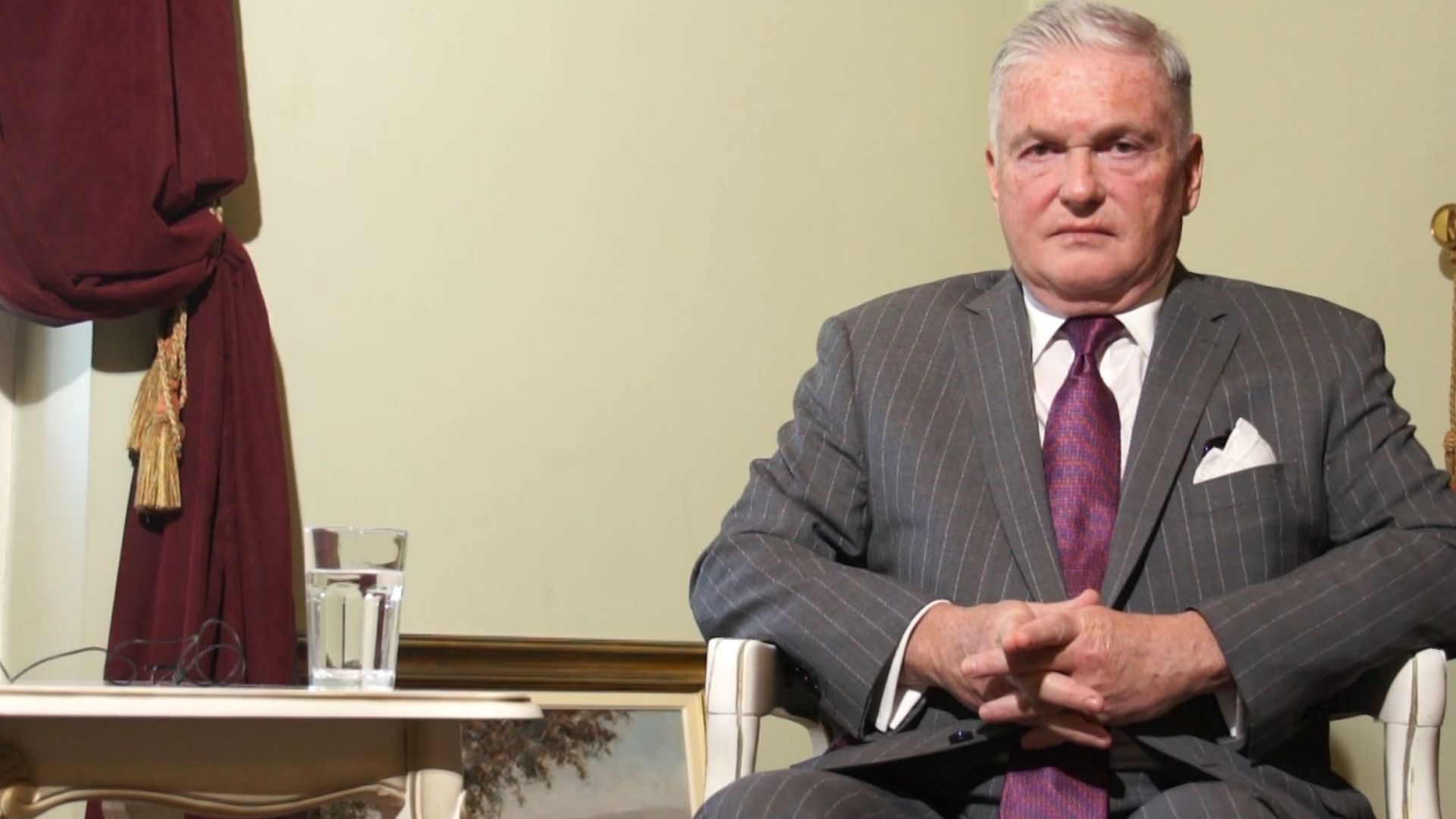

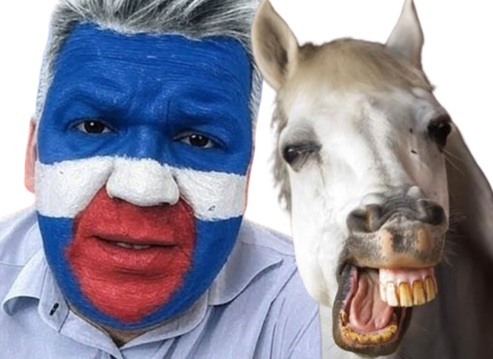
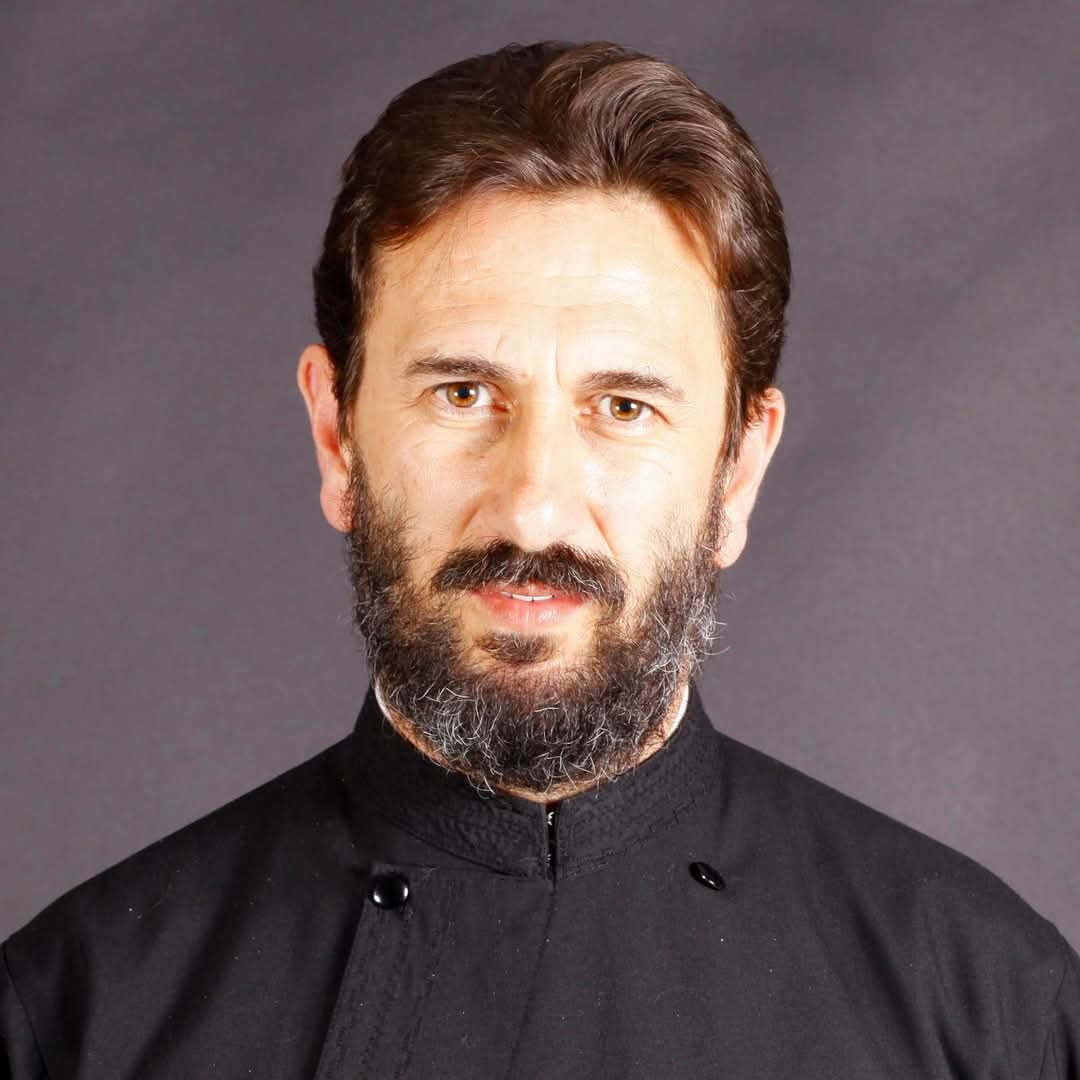

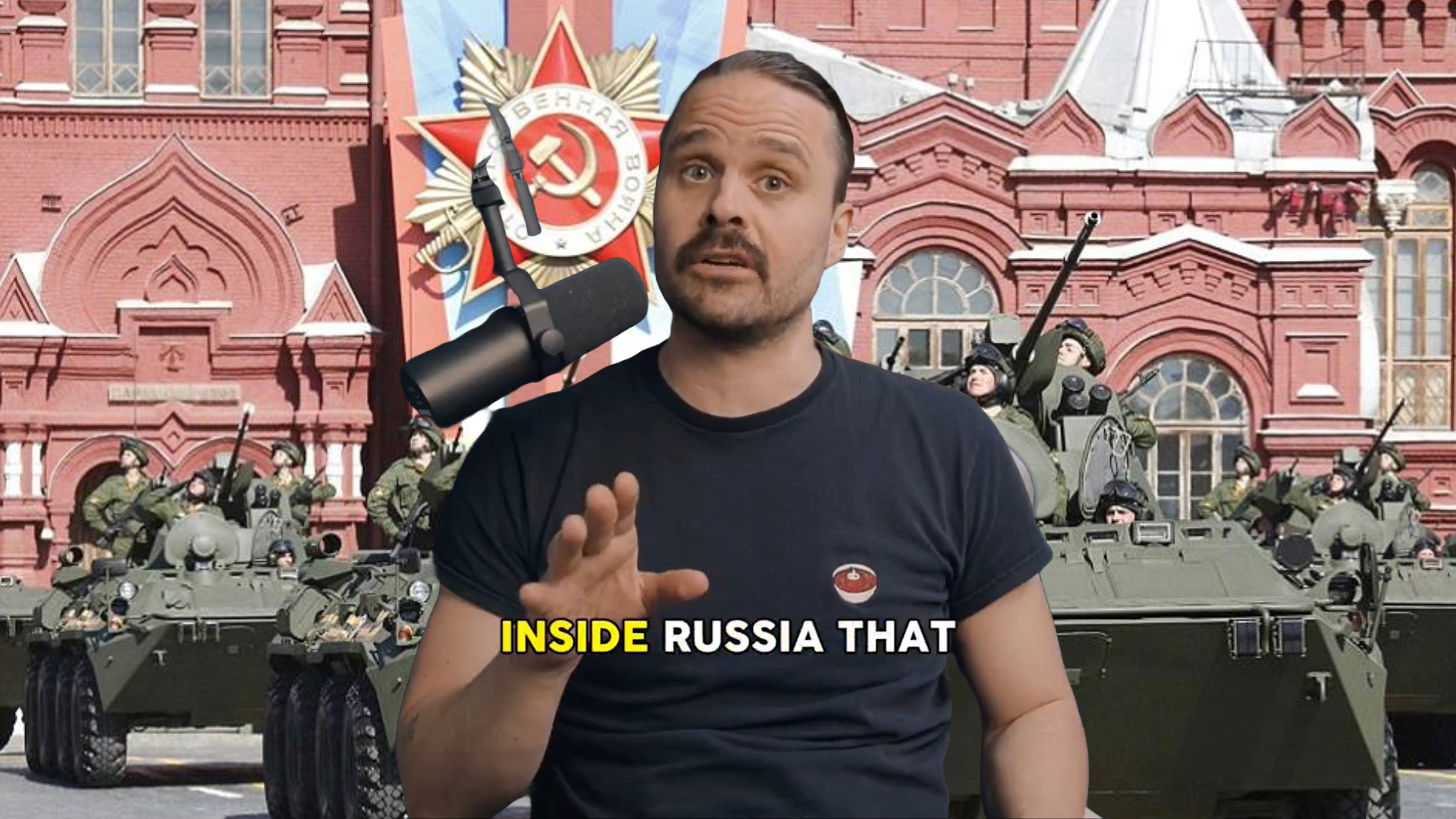

23 Comments
neamtu tiganu
17 April 2011Partea cu chirurgia puteai s-o sari! Strica tot dramatismu.
Vlad P.
17 April 2011Cred că ai dreptate, însă sunt unii mai mecaniciști, care au și astfel de nevoi.
Florina B.
17 April 2011Multumesc, Vlad. Asa a fost. Inclusiv „partea cu chirurgia”.
Radu P.
17 April 2011Cîteva lucruri despre Cruce. Mai prozaice, dar mai aproape de adevărul istoric. În filmuleţ se vede cum El duce o cruce. Obiceiul roman, confirmat de multe documente, era ca crucea să fie asamblată la locul supliciului. Iisus a dus numai una din cele două părţi ale crucii, mai probabil a dus bîrna transversală numită patibulum, care se fixa la locul supliciului în crestătura de pe stîlpul numit palus. Acesta de obicei era înfipt din vreme în pămînt. Iisus a purtat grinda transversală, patibulum, de la fortăreaţa lui Antonius şi pînă la porţile oraşului, căci ni se spune despre Simon din Cirene: „venind din oraş”. Sutaşul, văzînd că Osînditul nu mai poate duce grinda (să nu uităm că fusese bătut crunt cu o seară înainte), l-a forţat pe ţăranul Simon să o ducă. Soldaţii romani nu voiau să pună mîna pe lemnul crucii, socotindu-l „lemn blestemat”, aducător de rău.
La locul supliciului călăii au urmat regulile oricărei răstigniri. L-au dezbrăcat pe Osîndit, l-au culcat pe spate şi, ţinîndu-l de mîini şi de picioare, i-au bătut cu ciocane lungi piroanele în podul palmelor şi în ambele capete ale patibulei. Apoi această grindă, patibula, cu Osînditul pironit pe ea a fost ridicată cu nişte furci speciale, furcilla, pe stîlpul palus şi a fost fixată în crestătură (scobitură) cu cuie sau cu frînghii.
Iertaţi-mă pentru aceste amănunte, care pot părea cinice, dar filmul lui Gibson este pe alocuri mai crunt, nejustificat de crunt.
Vlad P.
17 April 2011Radu,
așa este, doar partea transversală a crucii era purtată. Menționează acest fapt și chirurgul traumatolog în secțiunea ”purtarea crucii”. Fragmentul video l-am atașat din alte considerente: purtarea de grijă a mamei, pentru care Hristos-Dumnezeu rămâne în continuare copilul ei și ideea restaurării Omului. E o scenă pe care o consider genială în filmul lui Gibson. Maria trece de la ipostaza mamei copleșite în fața neputinței de a-și ajuta copilul, la ipostaza omului copleșit de a fi în prezența lui Dumnezeu, Ziditorul a toate:
ateu
17 April 2011Sa nu uitam niciodata ca reprezentantii religiei organizate au fost cei ce l-au omorat pe Iisus. El si-a dat seama cat de nociva si intoleranta poate fi religia Vechiului Testament, de aceea pe parcursul vietii lui a incercat imposibilul: sa transforme o religie a urii, a obedientei oarbe intr-un zeu arogant si nemilos, in ceva uman. A reusit doar partial, dar chiar si-asa civilizatia occidentala crestina a reusit sa le depaseasca pe toate celelalte de indata ce a renuntat din nou la inchizitii si s-a apropiat din nou de cuvintele sale de toleranta.
Dar predicarea dragostei fata de aproape si impotrivirea sa fata de clerul imbuibat i-au adus sfarsitul. Chiar daca zeul intolerant al desertului, fie de inspiratie islamica, fie iudeo-crestina, va ajunge curand la lada de gunoi a istoriei, Iisus nu va fi uitat prea curand.
Anca Cernea
17 April 2011Ateule, reprezentantii organizati ai religiei tale au omorat nu de mult mai mult de o suta de milioane de oameni.
Acest fapt ar trebui sa fie suficient ca sa te abtii de lasat comentarii sulfuroase aici, sub o icoana a religiei pe care clerul vostru imbuibat se straduieste sa o distruga in numele „tolerantei”.
Religia voastra, a urii si obedientei oarbe fata de un inger cazut, arogant si nemilos, vorbeste din lada de gunoi a istoriei, dar nu are nicio sansa spre a iesi din ea… nici daca veti reusi sa transformati toata istoria intr-o lada de gunoi.
Cristina G
17 April 2011„Moartea este suprema proba prin care se aleg oamenii care cred de cei care nu cred. Moartea suportata cu credinta este cel mai deplin omagiu, adus lui Dumnezeu.Nu ne cere Dumnezeu viata de aici pentru a si-o adauga la a Sa,ci ne cere prin aceasta actul suprem al credintei in El” (Paul Althaus- „Die letzen Dinge”)
Iisus S-a facut om pentru a putea intra in solidaritate cu omenirea,pentru a o mantui.Deci, a luat o natura umana, capabila de a muri (moartea este urmarea pacatului stramosesc), chiar fara a pacatui personal, dar asumandu-si pacatul universal omenesc, a deschis in omenitatea Lui poarta mortii.Iisus-Logosul, care a invins neantul la creatiune, S-a plasat din nou in fata lui, dar nu ca Dumnezeu, ci ca om, ca victima, ca obiect menit sa se lase invaluit de el. Moartea sau neantul fiind si deplina absenta a lui Dumnezeu si maxima apropiere a celui rau, Iisus, care-si infrana dumnezeirea de a-si exercita puterea, a gustat ca nici un om grozavia mortii. Aceasta s-a putut intampla pentru ca, preluand pacatele omenirii, s-a produs departarea de Dumnezeu si indrazneala satanei de a se apropia de El. In In starea de victima peste care inainteaza moartea, El este subiect-jertfa este totodata jertfitor.El nu este doborat de moarte, El moare ridicat in sus; simturile sufletul lui Hristos sunt tinute in maxima trezvie si capacitate de suferinta. Asezandu-se in raport cu moartea ca om, a trebuit sa se comporte ca om ce poarta asupra lui pacatul omenirii, dar nu vrea sa-l imulteasca refuzand sanctiunea, ci sa-l ispaseasca primind-o benevol.Prin om a capatat neantul din nou putere asupra Universului creat, tot prin om trebuia invins, prin om si in om trebuia reconfirmata firea in existenta.Dar omul simplu nu ar fi putut invinge neantul; in fata neantului trebuia sa stea
Doar omul purtat de Logos putea sa aiba puterea de a suporta moartea in asa fel ca sa o infranga! El a experiat intai deplina instrainare si parasire de catre Dumnezeu, apoi moartea pana la ultima limita : „Dumnezeule, Dumnezeule, de ce m-ai parasit?” Desi a avut parte de cele mai mari dureri ce se pot inchipui, pentru ca sensibilitatea lui Iisus in raport cu suferinta si umilinta era unica, El nu s-a dezis de misiunea Sa de restaurare a omului. Nu s-a lasat coplesit de suferinta si de moarte, nu I-a putut atinge spiritul. Lucrarea de distrugere a vietii istorice a lui Iisus prin puterea neantului era atat de intensa, incat s-a resimtit si cosmosul; pamantul s-a cutremurat, catapeteasma templului s-a rupt, si stancile s-au despicat, soarele s-a intunecat, nesuferind sa-L vada batjocorit pe Dumnezeu. Dar, culminatia mortii coincide cu biruinta asupra ei, Iisus ridicandu-se chiar in clipa mortii in celalalt plan de existenta, caci nu era cu putiinta ca El sa fie tinut de moarte. Cel dintai care a plecat de aici fara urma de pacat personal, nu a avut viata ingustata decat de trup, nu si de pacat, de aceea, indata ce a scapat de trup, puterile spiritului sau omenesc, au tasnit in adancimea si vastitatea vietii Sale depline. Biruinta lui Iisus asupra mortii-realizata in omenitatea Sa-se transmite si oamenilor, aduce si scaparea de moarte a naturii omenesti, prin consolidarea definitiva a ei in apropiere de Dumnezeu, indestructibilitatea ei, prin comuniune spirituala cu omenitatea lui Hristos si in departarea de cel rau. Puterea cea noua in omenitate sta in apropierea intima de Dumnezeu, cu voia lui Dumnezeu, prin Iisus Hristos.
ateu
17 April 2011Au omorat in numele comunismului, nu in numele ateismului. Ateismul inseamna pur si simplu necredinta intr-un zeu. Spre deosebire de altii, eu merg si mai departe si incerc sa fiu non-idealist, adica sa stau deoparte de orice ideologie, fie ea religioasa sau ateista. De asta si urmaresc siteul asta, fiindca spune niste adevaruri legate de politica.
Ceea ce pierdeti din vedere este ca e posibil sa fii de dreapta, chiar conservator, fara a fi crestin. Statul Singapore e foarte conservator si pro-business, n-are treaba cu progresismul si e printre cele mai prospere orase din lume, avand totodata cea mai scazuta rata a criminalitatii.
Eu doar ma apar impotriva unor preoti barbosi care fura din banii mei, construind edificii de cult faraonice in totala contradictie cu spiritul invataturilor lui Iisus. Religia organizata (cu lideri la nivel mai mare decat cel al unei biserici locale) trebuie sa dispara, ca de altfel toate ideologiile organizate (incepand de preferinta cu islamul si progresismul) insa nu am nimic impotriva unui crestinism practicat intr-un mod prietenos la adresa necredinciosilor, care nu presupune furtul din banii nostri prin intermediul statului progresist activ in economie.
Considerati mesajul meu ca pe un semnal de alarma: daca preotii si conducatorii BOR se comporta la fel ca si pana acum, in loc sa dea dovada de ascetism, mila, toleranta, intelegere chiar fata de dusmanii lor („intoarce si celalalt obraz”) – cu alte cuvinte, sa combata progresismul prin puterea exemplului si organizarea de institutii de ajutor voluntare, paralele Statului progresist si superioare acestuia – BOR nu va mai rezista pana la mijlocul acestui secol ca institutie. Preotii ortodocsi trebuie in secunda asta sa devina macar pe jumatate la fel de virtuosi ca monahii budisti daca vor sa incetineasca declinul crestinismului in Romania. Progresismul e puternic, iar BOR il subestimeaza sau il ignora. BOR va pierde daca continua asa, desi si mie mi-e teama de ce ideologie ar putea inlocui crestinismul. Dar in situatia actuala, declinul e inevitabil. BOR pur si simplu nu e trendy; Hollywoodul, bastionul progresismului, e trendy. Iar un stat teocratic care sa converteasca cu forta ca in Islam e de neconceput. Sah-mat.
Eu nu am niciun prieten imaginar, nici Satana, nici D-zeu. Iar daca Satanismul ar fi o religie organizata sustinuta de statul roman inclusiv din banii ateilor, as avea aceeasi atitudine.
Rosu
17 April 2011@ateu
Daca nu ai credinta de unde cunosti invatatura lui Iisus Hristos? Celebra „perla” a lui Iliescu despre socialismul crestinismului iti sugereaza ceva?
E foarte interesant cu oameni care nu vor sa aibe de a face cu Hristos in persoana cred ca Il inteleg mai bine decat Biserica… Foarte, foarte interesant…
Oare cum ar fi sa nu mai fiti atat de aroganti, condescendenti? Oare chiar asa, nu va rusinati sa presupuneti ca ar fi crestinii prostuti, naivi, creduli si incuiati? Pare ciudat cum se uita o pleiada de filozofi si intelectuali crestini, li se imputa ca ar fi avut un „prieten imaginar”. Biserica nu a fost niciodata „trendy” si tocmai datorita acestei prezente non-trendy a dainuit. Trendurile sunt efemere. Aggiornamento-ul este o mare, mare pacaleala si romano-catolicii cu greu se scutura de el si azi… Crestinismul are un mesaj clar, ce e ancorat in eternitate. Biserica nu cauta mai multi prieteni pe Facebook, ci cauta sa aduca mai multe suflete la Hristos.
Iisus nu a fost popular, nu a iubit faima, nu a cautat sa impresioneze si sa emotioneze. A avut in vedere oamenii, pe fiecare dupa numele lui, cum zice la Liturghie, spre mantuire, redobandirea statutului de fii.
CRUCIATUL
17 April 2011@Ateu:
Tu esti comunist. Edificii faraonice sunt mizerii gen ,,Casa Poporului” care ar trebui rasă de pe fata pamantului. Nu-i nimic, in curand, langa ea se va inalta triumfatoare Catedrala Mantuirii Neamului.
Nu fura nimeni din banii tai. Asta e o consecinta a faptului ca traiesti intr-un stat DEMOCRATIC, in care majoritatea sunt ortodocsi.
Virtuosi? De Muntele Athos ai auzit? De MANASTIRILE din Romania? Avem si noi, crestinii, ELITA noastra de ASCETI SI CALUGARI, . Preotul e preot. Nu poate fi ascet cum sunt monahii. Insa asta nu inseamna ca e un destrabalat. De-asta exista institutia casatoriei. Pentru a infrana relele porniri. Desigur, preotii nu se compara cu ELITA CRESTINISMULUI care au fost , sunt si vor fi marii asceti, mistici si calugari.
PS: Crestinismul se inrudeste cu budismul mai mult decat iti imaginezi.
Vlad M.
17 April 2011Cruciatul, te inseli in privinta asemanarii dintre crestinism si budism. Te rog citeste urmatoarele:
G.K. Chesterton – Orthodoxy
Vlad M.
17 April 2011Ateu
Inexact. Au omorat in numele comunismului si in numele ateismului. Comunistii erau foarte mandri de ateismul lor si considerau ca este de datoria lor sa lupte impotriva „superstitiei”, adica impotriva tuturor formelor de credinta. Acest crez este o constanta de la Marx, Lenin, Stalin si toti urmasii lor. Supraomul nu poate accepta ca ar exista o constiinta superioara omului.
Este posibil, dar nu poti fi de dreapta si conservator fara a recunoaste crestinismul si a-l trata cu importanta cuvenita. Apoi, nu as extinde conservatorismul in afara zonei iudeo-crestine. Nu are acelasi sens, Asia avand un cu totul alt profil cultural. Mai urmeaza sa spunem ca Ahmadinejad e conservator!
Progresismul considera ca religia e superstitie, iar religia organizata intretine starea de aservire a omului fata de superstitie. In realitate, progresismul este inseparabil de ateismul, de Contra-Biserica Atee care isi face ca unic scop in viata infrangerea credintei religioase, in special a celei in crestinism.
1. Monahii trebuie comparati cu monahii budisti, nu preotii.
2. Te rog citeste ce scrie Chesterton despre budism si crestinism. Diferenta este foarte mare.
Ateu, numai progresismul poate sa sustina ca Biserica trebuie sa fie „trendy”. Scopul Bisericii este acela de a mantui, nu de a castiga concursuri de popularitate. Transforma Biserica in Hollywood si nu ii vei salva pe hollywood-isti, dar in mod cert ii vei indeparta de tine pe credinciosi…
neamtu tiganu
17 April 2011În Marțea Săptămânii celei Mari am făcut pomenire, tot îndrumați de Sfânta noastră Biserică, despre pilda celor zece fecioare, deci despre fecioarele înțelepte și despre fecioarele neînțelepte. Este o pildă spusă de Domnul Hristos și pe care Sfânta noastră Biserică ne-o pune în fata conștiinței în Marțea cea Mare. Și noi, parcurgând Săptămâna Sfintelor Pătimiri, am pomenit marți pilda cu cele zece fecioare și pe cele zece fecioare, luând aminte și prin textele liturgice din ziua respectivă la cele cinci fecioare înțelepte, care au avut untdelemn în candelele lor și care L-au întâmpinat pe Mirele care este Domnul Hristos, au intrat cu El în cămara nunții și s-au bucurat de ospățul mirelui, în timp ce celelalte cinci fecioare nu s-au putut bucura de întâlnirea cu Mirele pentru că au mers să-și cumpere untdelemn pentru candelele lor. Această pildă, Domnul Hristos ne-o pune în față ca să ne gândim la faptul că trebuie să fim întotdeauna pregătiți prin fapte bune pentru întâmpinarea Mirelui ceresc, să fim alcătuiți prin faptele nostre cele bune ca să putem lua parte la ospățul cel veșnic. Domnul Hristos ne îndeamnă la priveghere, concluzia pildei fiind: „privegheați și vă rugați că nu știți când vine Fiul Omului”
neamtu tiganu
17 April 2011Aflu, pe acest blog, cu indreptatita uimire, ca Domnu Hristos a fost de dreapta!?
Vlad M.
17 April 2011Da’ n-am inteles, era de stanga?
neamtu tiganu
17 April 2011Domnu Vlad, te rog sa faci un desen, sa-l pui pe Domnu Hristos pe stg. si ideile de dreapta, pe dreapta, sa ne spui in ce masura acestea coincid. Ai o juma de ora. In cazu in care nu reusesti te rog sa nu mai postezi pe acest topic.
Vlad M.
17 April 2011Esti penibil, tigane. ???? Un troll lipsit de scop in viata. La varsta ar trebui sa ai mai multa minte, nu glume de a 9-a.
neamtu tiganu
17 April 2011Domnu Vlad me, il cunoasteti pe domnu Emil be? Am impresia ca sunteti colegi de suferinta de dr. Daca ati fost atent ati fi vazut ca domnu emil be mi-a dat un extemporal cu acelasi continut si deoarece nu l-am luat m-a lasat corijent. Nu te mira, asta e nivelu vostru.
Si totusi, domnu Hristos era de dreapta sau de stinga? Ce spun documentele de partid?
Vlad P.
17 April 2011Neamțu, e simplu. Dacă înțelegi pilda talanților e foarte ușor de ”dibuit” tipul uman plăcut lui Dumnezeu: muncitor, întreprinzător (adică nu la întins mâna pentru asistență socială), singur chivernisitor al darurilor (calităților) primite de la Dumnezeu, gospodar, responsabil (nerisipitor), îndrăzneț etc.
privește bine la socialiști, la mentalul de asistat și cred că vei reuși să-ți răspunzi singur, fără desen
Vlad P.
17 April 2011Ca să vezi ”chipul” omului de stânga:
Germania: Noua Constituţie a Ungariei este incompatibilă cu valorile UE
Cam astea sunt argumentele lor (valorile sunt cele stabilite de ei, nu de Tradiție). A proclama existența unui Dumnezeu, mai mult, a lui Hristos-Dumnezeu (pentru că e vorba de creștinism), reprezintă pentru ei o discriminare. Pe acești trepăduși îi preocupă hipersensibilitățile ateilor sau ale celor ce mărturisesc alt Adevăr. Nu mai contează pentru populistul de stânga faptul că face ceva la propriu pe sentimentele creștine ale majorității. Nu, important e să-și asigure voturile imigranților musulmani, budhisti, hindu și… atei
Omul de dreapta își mărturisește crezul la lumina zilei, cel de stânga după cum bate vântul schimbării, fiindcă singura lui rațiune de a fi este stomacul plin dublat de popularitate. Important e ca LUMEA să-l aprecieze, să-l înțeleagă, nu Hristos.
Vlad M.
17 April 2011Documentele de partid spun ca ti-a expirat timpul, tigane. I wish you had more time, dar asta e, viata-i de dreapta. ????
Bine zis, Vlade.
CRUCIATUL
17 April 2011De fapt, Hristos era APOLITIC. Adevaratii crestini sunt apolitici. Iata ce sustin ,,documentele de partid ” :
36. Iisus a răspuns: Împărăţia Mea nu este din lumea aceasta. Dacă împărăţia Mea ar fi din lumea aceasta, slujitorii Mei s-ar fi luptat ca să nu fiu predat iudeilor. Dar acum împărăţia Mea nu este de aici. (Sfanta Evanghelia dupa Ioan 18, 36 )
14. V-am scris, părinţilor, fiindcă aţi cunoscut pe Cel ce este de la început. Scris-am vouă, tinerilor, căci sunteţi tari şi cuvântul lui Dumnezeu rămâne în voi şi aţi biruit pe cel viclean.
15. Nu iubiţi lumea, nici cele ce sunt în lume. Dacă cineva iubeşte lumea, iubirea Tatălui nu este întru el;
16. Pentru că tot ce este în lume, adică pofta trupului şi pofta ochilor şi trufia vieţii, nu sunt de la Tatăl, ci sunt din lume.
17. Şi lumea trece şi pofta ei, dar cel ce face voia lui Dumnezeu rămâne în veac.
(Întâia epistolă sobornicească a Sfântului Apostol Ioan 2, 14-17)